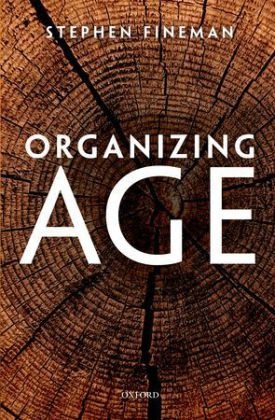Read more
Zusatztext Provides a broad perspective on the ways in which age is defined in various disciplines and various points in history... the book fills a literature gap, and it does so in a way which most people would find approachable and at times entertaining ... Organizing Age is welcomed as it paves the way for a greater understanding of how we view age and will be valuable in breaking down the barriers of ageism. Informationen zum Autor Throughout a distinguished career, Professor Fineman has written extensively in journals, monographs, and textbooks on the political and emotional features of life in organizations. He has been at the forefront of introducing critical, constructionist approaches to the study of organizations in works such as Emotion in Organizations (2000) and Understanding Emotion at Work (2003). He has long been an advocate of blending psychological, sociological, and anthropological insights in our appreciation of organizational phenomena, such as stress, unemployment, greening, leadership, and change. Klappentext This book is an accessibly-written critical introduction to the role of age in and beyond organizations, providing insights into the history of age, the social construction and politics of age, age stratification, and age discrimination. Zusammenfassung Age is the silent shaper of work organizations and their human resource practices. It has become a potent feature of how society is structured and how it views itself. Age assumptions mould the behaviours of young and old alike, and are used as political tools by policy makers and managers. Organizing Age asks the perennial question - can age ever not matter? Drawing on range of social scientific and popular writings, this book casts a critical eye over the social construction and politicization of age in and beyond organizations. Amongst other topics, it discusses: the historical roots of age in society; how we 'perform' our age in different settings; the social impact of defining age groups as generations; ageism; the effect of an age-cluster on an organization's processes and members' experience; the rituals of retirement and the birth of the retirement industry; the impact of economic recession in challenging some of our assumptions about age; and the increasing politicization of the growing 'grey' population.Organizing Age provides an accessible introduction to the current and emerging themes around this topic, which will be an invaluable resource for students, academics, and policy makers. Inhaltsverzeichnis Preface 1: Why Age? 2: Age Work 3: Generations 4: Ageism 5: Capturing Age Cohorts 6: Retirement 7: A New Age? ...

